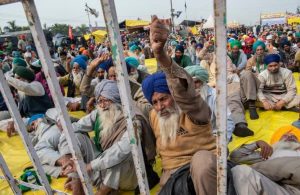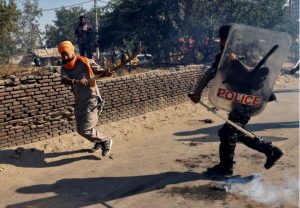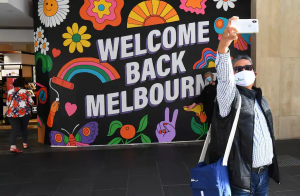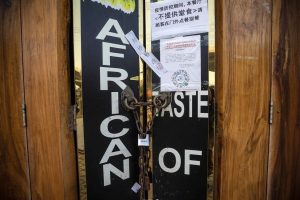By: Reena Patel
Journal of Global Rights and Organizations, Associate Articles Editor
NEW DEHLI, India – On January 12th, 2021, the Supreme Court of India issued a judgment to suspend the implementation of three proposed “farmer” laws by Prime Minister Narendra Modi and the Bharatiya Janata Party (BJP) until a committee of government officials and protestors meet to find a solution. The decision to suspend the farmer laws, for the time being, comes after weeks of national protest by Indian farmers, namely farmers from the northern states of Punjab and Haryana.

Currently, Indian farmers sell their produce at government-controlled markets (mandis) that have guaranteed minimum prices for crops. With the mandi system, farmers have assured prices and the option to use the mandi system if prices by private buyers are not satisfactory. The three farmer laws passed by Parliament in September would strip the protections offered to farmers through the mandi system. Instead of using middlemen through the mandi system, the farmer laws would open up the agricultural business to the free market. Farmers see the laws as pro-market laws that would privatize their business and strip their livelihoods for the sake of corporate greed.
While Modi attempted to pass laws that would fundamentally change the quality of life for more than 60% of India’s population that depend on farming to make a living, the farmers have organized to defend their rights. The first protests began in July, mostly taking place in Haryana and Punjab. In November and the following weeks, thousands of farmers from Haryana and Punjab traveled to Delhi. Farmers blocked almost all entry points to Delhi and remain in protest even when police brutalized the protestors with tear gas and water cannons. The farmers have parked their tractors and trailers to remain in protest until the laws are repealed. The protestors have slept in tents and on the street at Delhi’s entry points and show no sign of moving, which raised health concerns for the Supreme Court given the current COVID-19 pandemic.

The farmer protest is one of, if not the, biggest protests to take place in India. The reason that many individuals have risked their lives on behalf of the 150 million farmers in India to travel to Delhi during a pandemic and withstand police violence is due to the fact that this movement is more than just a farming issue. Modi and his Bharatiya Janata Party are known for their Hindu nationalist policies that exclude the freedoms and rights of religious minorities in India. Punjab and Haryana, states of individuals who are of the Sikh religion, fall into this category of religious monitories. Modi has not faced mass protests on this scale since his regime and has attempted to discredit many of the Sikh protestors as “anti-national.”
Farmers in India are “fearlessly taking on the powerful government” as a “revolution for their rights” because many farmers fear exploitation of their rights. Even now, farmers struggle with increasingly rising levels of debt, and many farmers have committed suicide due to unfair treatment. With so much on the line for farmers, they remain in protest until Modi repeals the three laws completely.
For further information, please see:
BBC News – Bharat Bandh: India Farmers Protest Against Law – 8 Dec. 2020
BBC News – How Narendra Modi Misread the mood of India’s Angry Farmers – 13 Jan. 2021
NY Times – Angry Farmers Choke India’s Capital in Giant Demonstrations – 30 Nov. 2020
NY Times – Indian Farmers vow to Continue Protest, Unappeased by Court Ruling – 12 Jan. 2021



